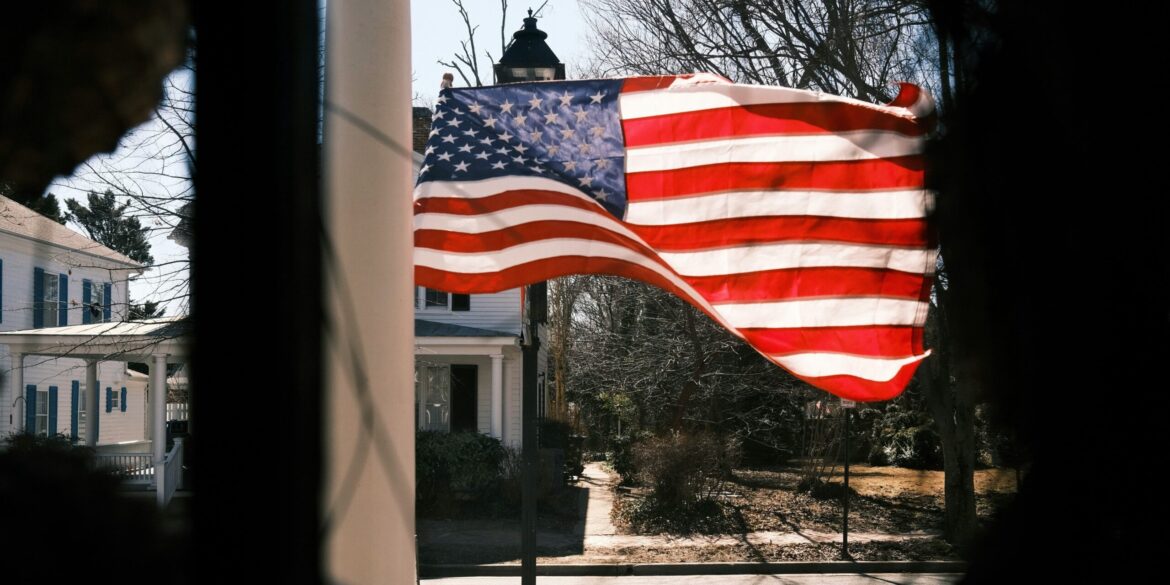A federal judge issued a major legal rebuke to the Trump administration on June 13, 2025, blocking the implementation of controversial components of a recent executive order aimed at reshaping federal election procedures. U.S. District Judge Denise Casper, ruling from Massachusetts, granted a preliminary injunction halting mandates that would require documentary proof of U.S. citizenship for voter registration and prohibit the counting of mail-in ballots received after Election Day.
In her opinion, Judge Casper found that these provisions overstepped constitutional bounds, asserting that such regulatory changes fall under the purview of Congress, not the executive branch. She warned that the order’s enforcement would disrupt longstanding election practices and intrude upon the constitutional rights of states to administer their own voting systems, in violation of the Tenth Amendment.
The ruling came in response to legal challenges brought by a coalition of 19 Democratic-led states and several civil rights organizations. These groups argued that the executive order—signed by President Trump in March—amounted to federal overreach, infringing on state sovereignty and threatening to disenfranchise eligible voters.
The Department of Justice responded swiftly to the injunction by suspending any enforcement activities related to the blocked portions of the executive order. DOJ officials indicated that while they intend to appeal the ruling, they would comply fully with the court’s instructions in the interim.
The executive order, one of the most significant election directives from the Trump administration since his return to office, had been positioned as a measure to enhance electoral integrity. Supporters of the order claim it would prevent non-citizens from voting and standardize election rules nationwide. They argue that current federal guidelines are too lax, opening the door to fraud and inconsistencies among states.
However, opponents—including election experts, state officials, and civil rights attorneys—cautioned that the proof-of-citizenship requirement would have created steep administrative hurdles, particularly for low-income voters and naturalized citizens who may not readily possess birth certificates or passports. Similarly, banning post-Election Day ballot counts could disenfranchise voters in military or remote areas who rely on mail-in voting and are accustomed to state laws allowing grace periods for ballot arrival.
Judge Casper emphasized the importance of maintaining established legal processes when altering the mechanics of federal elections. She cited previous legal precedent affirming that significant changes to voter eligibility or ballot processing must be enacted through congressional legislation, not executive fiat.
Legal scholars noted that the injunction reinforces constitutional checks on presidential power, particularly in areas where the framers deliberately assigned authority to the legislative and state branches. “This decision is a clear affirmation of our federal system,” said Rick Hasen, a law professor and election law expert. “It sends a message that the executive branch cannot unilaterally rewrite election rules.”
State officials who joined the lawsuit welcomed the ruling as a necessary intervention. “This was a dangerous and unnecessary power grab that threatened to upend how states conduct free and fair elections,” said California Attorney General Rob Bonta. “The court recognized that and put a stop to it.”
Civil rights groups also applauded the decision, framing it as a victory for democracy and voter access. “Every eligible citizen deserves the right to vote without unnecessary barriers,” said Janai Nelson, president of the NAACP Legal Defense Fund. “This ruling helps preserve that principle.”
On the other side, Trump administration officials reiterated their commitment to pursuing the executive order’s goals. A spokesperson for the White House criticized the injunction as “a misguided defense of the status quo,” and insisted the order was legally sound and politically necessary to protect American elections from foreign interference and fraud.
Looking ahead, the legal battle is far from over. The administration is expected to appeal the decision, potentially escalating the matter to the Supreme Court. Meanwhile, lawmakers in Congress may feel renewed pressure to clarify federal election standards, particularly regarding voter ID requirements and the timing of ballot counting.
Election officials across the country are now facing continued uncertainty as they prepare for the 2026 midterms. With the executive order on hold and litigation ongoing, states must proceed under existing laws unless or until Congress steps in.
This latest ruling highlights the delicate balance of power in American democracy and sets the stage for continued conflict over the role of federal authority in managing the nation’s most fundamental democratic process: voting.

